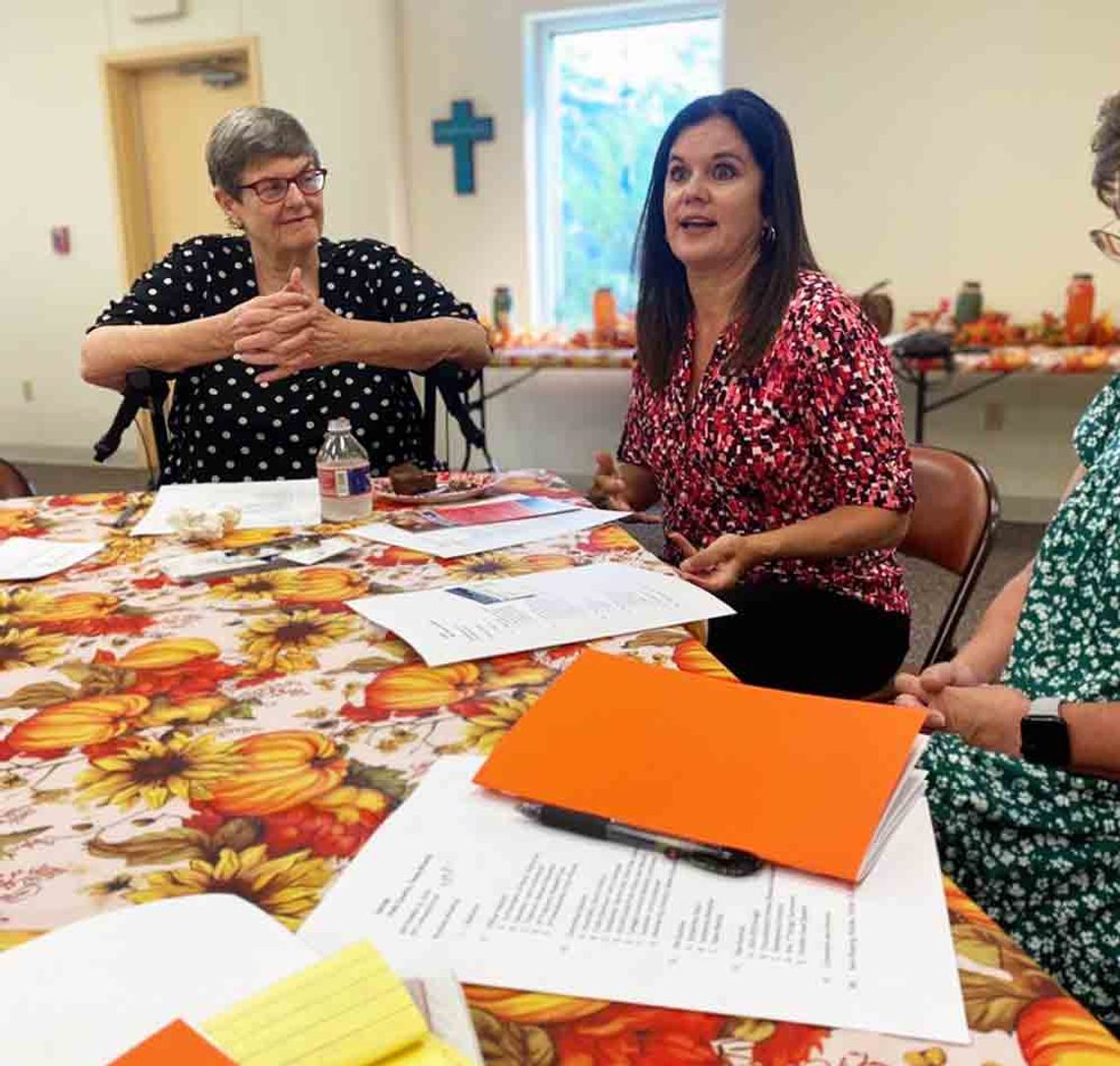By Emily Banks Wooten
[email protected]
Natalie Thornton, executive director of CASA of the Pines, presented a program for the September meeting of the Polk County branch of the American Association of University Women (AAUW).
CASA is the acronym for Court-Appointed Special Advocate and the mission of CASA of the Pines is to train community volunteers to advocate on behalf of abused and neglected children involved in the court system so that each child is placed in a safe permanent home.
CASA volunteers get to know the child and everyone involved in the child’s life to advocate for the child’s best interests while in the foster care system. They also speak up for the child in court, as a voice making a difference at a critical point in a child’s life.
CASA of the Pines was formed in Lufkin, Texas in 1995 to serve the children and families involved in the child welfare system due to allegations of abuse or neglect from Angelina County. The program expanded to Houston County in 1999 and to Polk County in 2003. Since 1996, CASA of the Pines has worked with more than 1,500 children and their families in Angelina, Houston and Polk counties.
CASA of the Pines is a 501(c)3 nonprofit organization governed by a volunteer board of directors and is a member of the National and Texas CASA Associations. There are more than 1,000 CASA programs nationwide and 72 CASA programs in the state of Texas.
“When a child is placed in foster care, the judge appoints a CASA who is considered a guardian ad litem. The first thing the CASA does is read the case. There are a lot of legal things – to protect a foster child – in a foster child’s case. The case is presented, and the judge makes a decision,” Thornton said, commenting that locally, the CASA cases are heard in court on Fridays and the judge handling them is Polk County Court at Law Judge Tom Brown.
“Probably 97% of the time, the child stays in care,” she said, adding that the reason is usually drugs, typically meth, but sometimes poverty.
“Probably over half are placed with family members. There’s been a shift. When I started in 2009, that wasn’t the case,” she said, adding that family members are more likely to stay in the area and they also provide familiarity for the child.
“Just as everybody’s childhood is different, every situation is different. Sometimes the parents are intellectually delayed. That’s more common than just a child being abused,” Thornton said.
CASA advocates go through 30 hours of training initially and an additional 12 hours annually. She said the time commitment is probably six to 10 hours a month.
CASA volunteers commit to at least one year of advocacy and must be at least 21 years old. They must pass criminal and CPS background checks, be able to communicate effectively both orally and in writing and participate in an in-depth training program.
To learn more about becoming a CASA, go to https://www.casapines.org/become-a-casa, call 936-634-6725 or email [email protected].
The Polk County branch of AAUW meets at 11 a.m. on the third Monday of the month at the First Presbyterian Church Fellowship Hall at 910 N. Washington Ave. in Livingston. Its mission is to advance equality for women and girls through research, education and advocacy. Anyone interested is encouraged to attend.










Comment
Comments